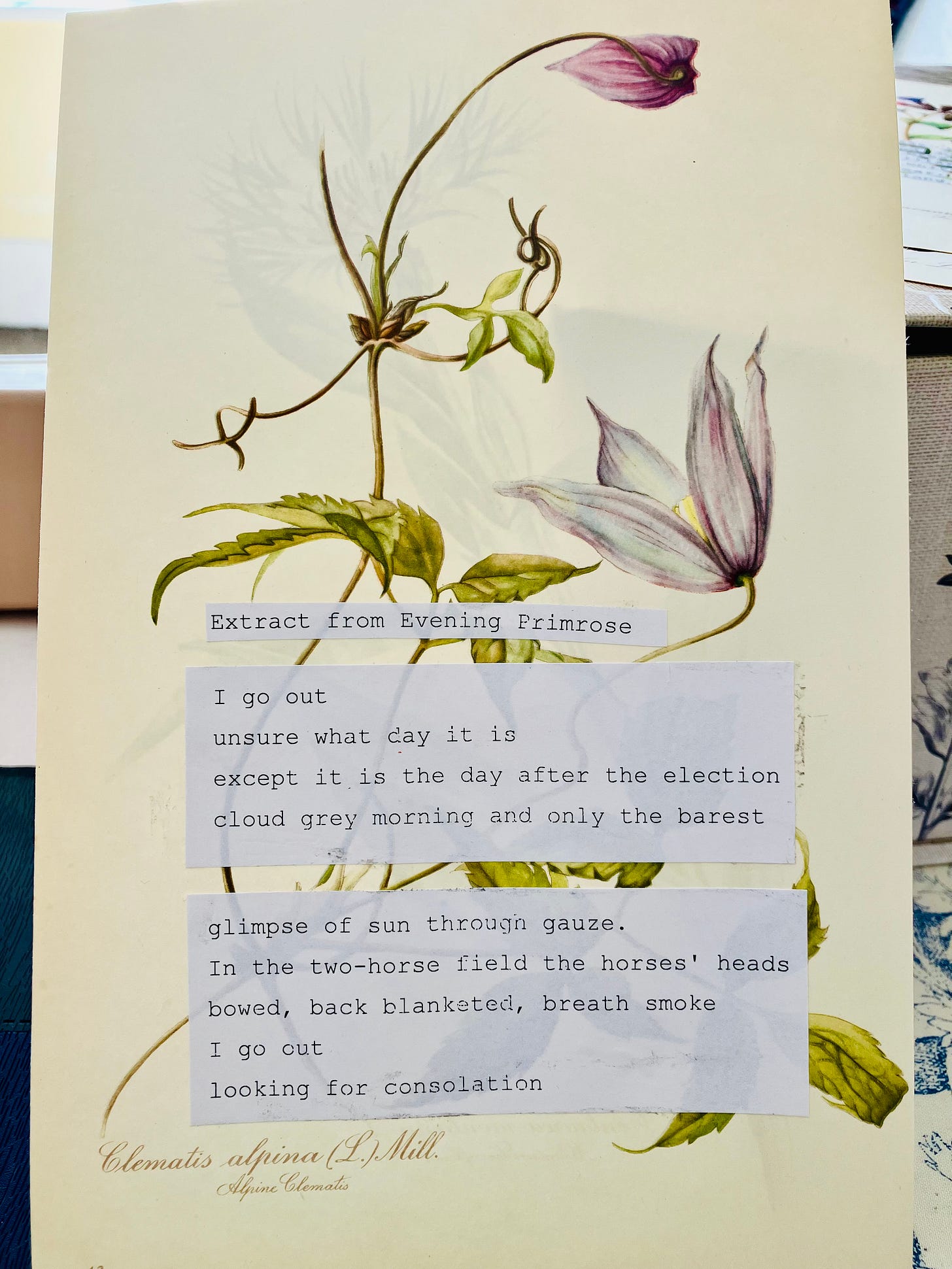April into May: gardens bloom, a time of falling blossom, of blossom turning to leaf, of tulips in abundance opening to the sun. Though I say it myself, my tulips have been rich and vibrant this year, a true reward for the chill of November planting. And it’s been a joy to sit in the garden, over the Bank Holiday, stealing a rare moment of peace, with my otherwise very busy daughter. Likewise, to see my three granddaughters chasing about: hunting for eggs, searching for snails, collecting leaves and stones, naming flowers and filling the bird bath with water. Though much of the water somehow seems to fall on them.
Lately life has been busy and there's been little time for writing. But even if I'm not writing I'm always thinking about writing and about my next project. I mull over how it might look, what form it will take and what the story is. Feeding into my thoughts have been two very special garden visits. Due to the generosity of the Garden Media Guild I was able to join them for a very special day of garden visits in Durham, led by writer, gardener and lecturer Ross Pearson: first to Crook Hall and secondly to the Cathedral Cut Flower Garden ( a garden which nestles unseen among the houses, in the South Bailey).
I was especially interested in the second of these two visits, as having learned that there was a garden here as far back as the 18th century, I already knew that I wanted to include it in my next writing project. I'd been wondering how I might gain access to such a private garden, so I was more than grateful for the opportunity to visit. Although there was nothing flowering, it was still a privilege to to be there and especially to meet the Head Gardener, Geoff, and talk with him about what shape the garden may have taken centuries ago. I am excited now to go back and visit Geoff and the team when the garden is in bloom.
Geoff declared it the year of blossom, and although the blossom is mostly gone, my eye was taken recently with the prospect of this workshop with poet Liz Berry. I've signed up. At £16.00 its a steal.
I'm continuing to make an inventory of my unpublished poetry and with flowers on my mind here is another poem extract using the illustrations of Elsa Felsko. This is an extract from my poem Evening Primrose, written the day after the American elections, to be published in full later this year in a Linen Press anthology.
In Sarah Salway’s Everyday Words May Newsletter, this week - always great value and worth subscribing to - I was happy to read Lucille Clifton's Let there be a new flowering, and be reminded of how much I love the deceptive simplicity of her work. This seems a beautiful, and hopeful message...
Let there be new flowering
Lucille Clifton
let there be new flowering
in the fields let the fields
turn mellow for the men
let the men keep tender
through the time let the time
be wrested from the war
let the war be won
let love be
at the end
I was also delighted to see that Marie Howe won the Pulitzer - she is one of my all time favourite poets and What the Living Do is a collection I return to again and again. You can read the title poem here - a tribute to her younger brother Johnny who died of AIDS.
Still on the subject of poetry, I was pleased to hear so many interesting and original poems emerging from my Wordfest Found Poetry Workshop. Events still to come HERE. Found poetry can be fun, but it can be tricky too. It makes us look closely at language and at what makes a poem. It worked well for me as I wrote along with the group which is always my preference and found a voice emerging for a character my new project. Thanks to all who came for working so hard and embracing the themes.
On the prose front, in response to Jeanette Winterson’s newsletter, I'm rereading Virginia Woolf’s Mrs. Dalloway. I last read this novel when I was 17 as part of my A-level English course. How different it seems now, though it’s hard for me to really remember what I made of it then. I think a lot of our discussions centred around the language itself, around what we called the 'stream of consciousness technique,' and the structure of a novel detailing the events of one day. What I made of Clarissa Dalloway I can't imagine. Though I'm certain the feminist perspective did not pass me by. Now in this new reading I frequently find myself at one with her. Though she is a woman of 50 and I am older there is nonetheless much that I relate to, especially the inevitability that comes with age, of looking back. As for the writing, I find myself constantly highlighting it. Paragraph after paragraph, it's exquisite: ...overcome with his own grief which rose like a moon looked at from the terrace ghastly beautiful with light from the sunken day
And for anyone currently grappling with grief, here is a wonderful post from Nick Cave's Red Hand Files. If you subscribe you will know that people send Nick Cave their questions and in each post he chooses a different question to answer. He is a man who knows about grief, having lost two beloved sons.
Finally, forgive me for not having totalled up the latest Medecins Sans Frontiers donation - I will do so very soon and send out a separate notification by next week.
As always - thanks for reading
Avril x




